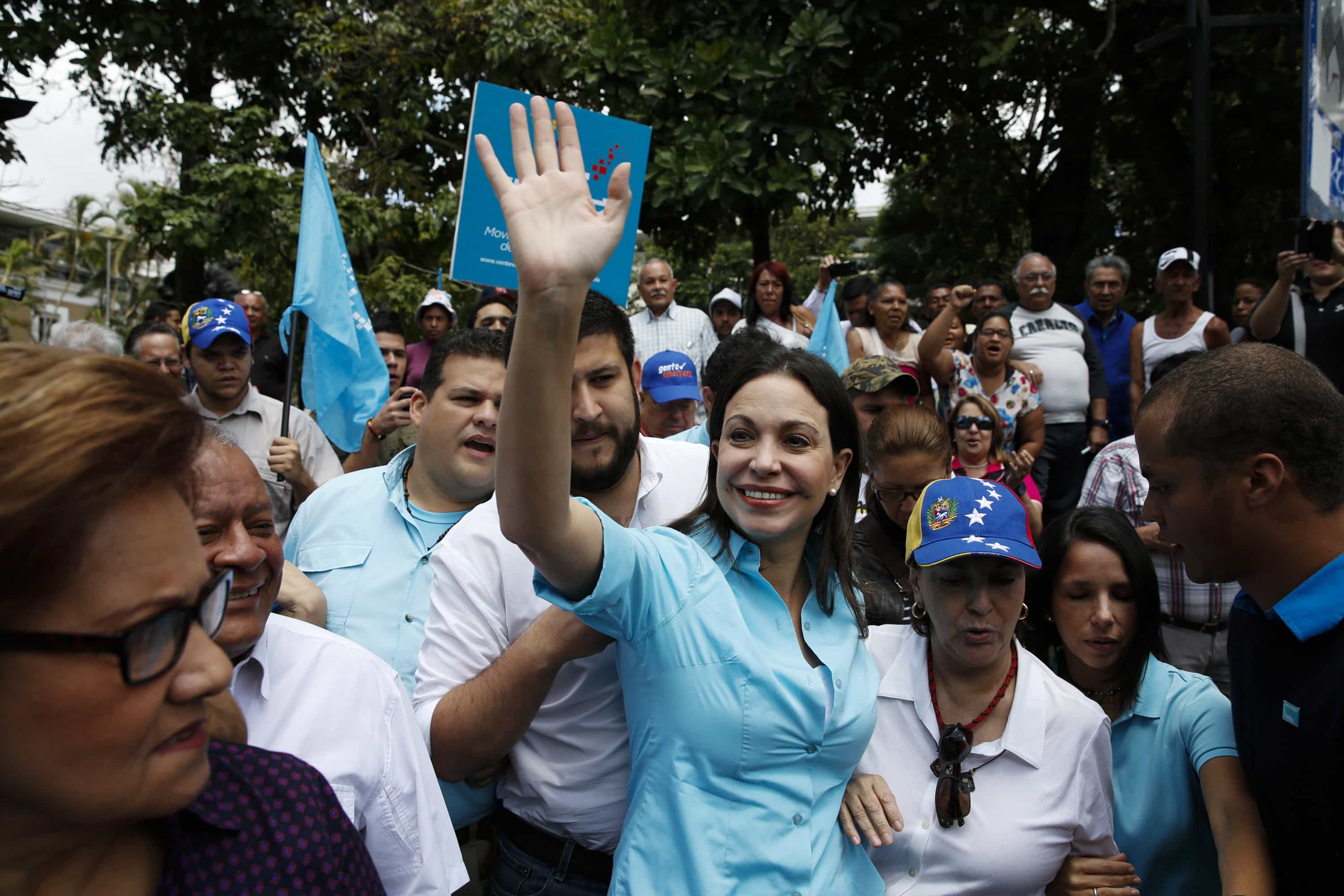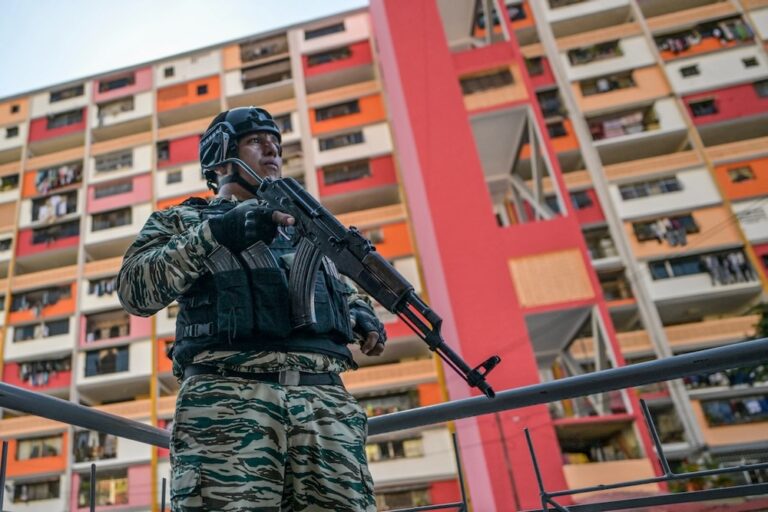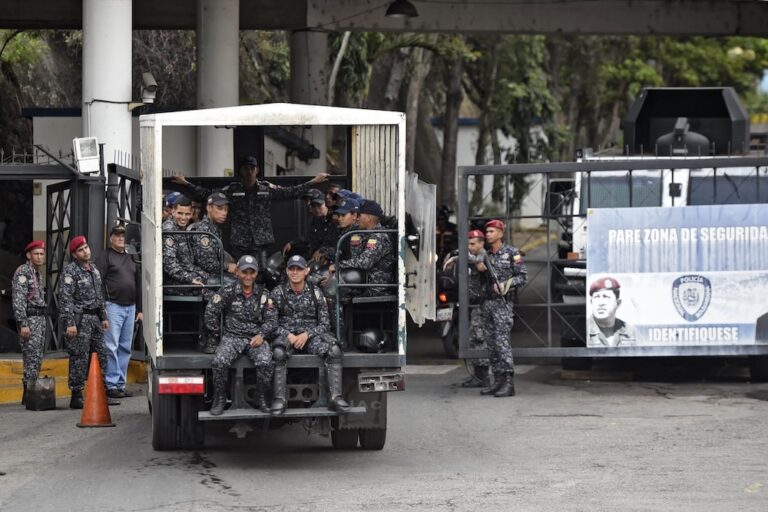At least five leading opposition candidates have beeb disqualified from running for office in Venezuela’s upcoming elections.
This statement was originally published on hrw.org on 27 August 2015.
Latin American governments and regional organizations should condemn the disqualification of at least five leading opposition candidates from running for office in Venezuela’s upcoming elections, Human Rights Watch said today. Groups such as the Organization of American States (OAS), the Union of South American Nations (Unasur), and the Common Market of the South (Mercosur) should speak out against these rulings.
All five recent cases raise concerns about arbitrary interference with rights of political participation. In contrast, no candidates from the governing party have been disqualified. The Inter-American Court of Human Rights has in an earlier ruling condemned Venezuela for disqualifying political opponents from running for office.
“It is critically important for Venezuela’s upcoming elections to be free and fair and for all voices to be heard,” said José Miguel Vivanco, Americas director at Human Rights Watch. “For that to happen, the Venezuelan government needs to ensure that all candidates who have the right to run for office can be on the ballot.”
Two of the candidates barred from running, Daniel Ceballos and Vicencio Scarano, were town mayors from opposition parties who were removed from office and sentenced to prison in trials that raised concerns about due process for allegedly failing to keep the rights of way in their towns clear during 2014 antigovernment protests. They were disqualified from running for office for failing to file financial disclosure statements by a deadline that passed when they were being detained in a military prison.
Another candidate, María Corina Machado, is a former opposition member of the National Assembly, who was removed by the National Assembly in early 2014 after she testified at an OAS meeting in Washington on human rights concerns in Venezuela, using a Panamanian diplomatic representative’s seat.
In December, Machado was charged with conspiracy in an alleged plot to kill President Nicolás Maduro, though the official documents on the case, which Human Rights Watch reviewed, indicate that there is no credible evidence to substantiate the allegation. She has also been prohibited from leaving the country since June 2014, in connection with another pending criminal case. She was disqualified for failing to include food vouchers, which she denies receiving, in her sworn asset statement.
Two former state governors from opposition parties – César Pérez Vivas of Táchira State and Pablo Pérez of Zulia State – were disqualified after being barred from holding public office for a period of years because they are being investigated for corruption.
Under Venezuelan law, the comptroller general has the authority to “suspend,” remove from office, or bar from holding office for varying periods people the government is investigating. People barred from occupying public office may not run for office during those periods.
But this law is inconsistent with applicable regional standards, which say that no one should be prevented from running for office unless they have been convicted of a crime.
The comptroller general, who was appointed in December 2014 by a simple majority vote of government supporters in the National Assembly, is the Maduro administration’s former solicitor general, a position whose main purpose is to defend government interests before the courts.
The comptroller general’s decisions are subject to appeal before the Venezuelan Supreme Court. But the government has long interfered in Venezuela’s justice system and has packed the Supreme Court with government supporters.
In July 2015, Diosdado Cabello, the pro-government president of the National Assembly, when asked about the disqualifications, said on TV that although some members of the government party had previously been disqualified from holding public posts, none of their candidates had been barred from participating in the elections.
The Inter-American Court of Human Rights, in a case analyzing disqualifications from holding office of people who had not been convicted of a crime, ruled in 2011 that the Venezuelan comptroller general’s actions violated the right to seek election to public office. The American Convention on Human Rights stipulates that a law may regulate political rights “only on the basis of age, nationality, residence, language, education, civil and mental capacity, or sentencing by a competent court in criminal proceedings.”
The Inter-American Court found that these requirements had not been met when the comptroller general had previously disqualified an opposition candidate from holding public posts. The 2011 ruling ordered Venezuela to modify the law that allows the comptroller general to disqualify candidates who have not been convicted of a crime, and Venezuelan judicial and administrative authorities to take this ruling into account when resolving cases.
The Venezuelan Supreme Court countered that same year by holding that the Inter-American Court’s ruling was “impossible to execute” and that the court had “pretended to impose political and ideological criteria that are absolutely incompatible with [Venezuela’s] constitutional system.” The comptroller general has since used the 2011 Supreme Court ruling to uphold political disqualifications, including in Ceballos’s case.
Venezuelan citizens and residents have been unable to request the intervention of the Inter-American Court since September 2013, when Venezuela withdrew from the American Convention on Human Rights. Venezuela continues to be bound by decisions adopted before the government withdrew from the treaty.
In July, OAS Secretary General Luis Almagro spoke out against the decision to disqualify Machado, stating that administrative decisions should not be used to disqualify people from holding office on political grounds. The OAS is seeking to monitor the coming legislative elections, but Maduro has openly rejected any meaningful oversight from international organizations.
“It is shameful that, with the exception of the OAS secretary general, key players have not spoken out against these tactics to shove leading opposition candidates off the ballot,” Vivanco said. “If Latin American governments and regional organizations such as Mercosur and Unasur are seriously committed to preserving democratic values and the right to political participation in Venezuela, they should publicly question these decisions and press Venezuela to reverse them.”



